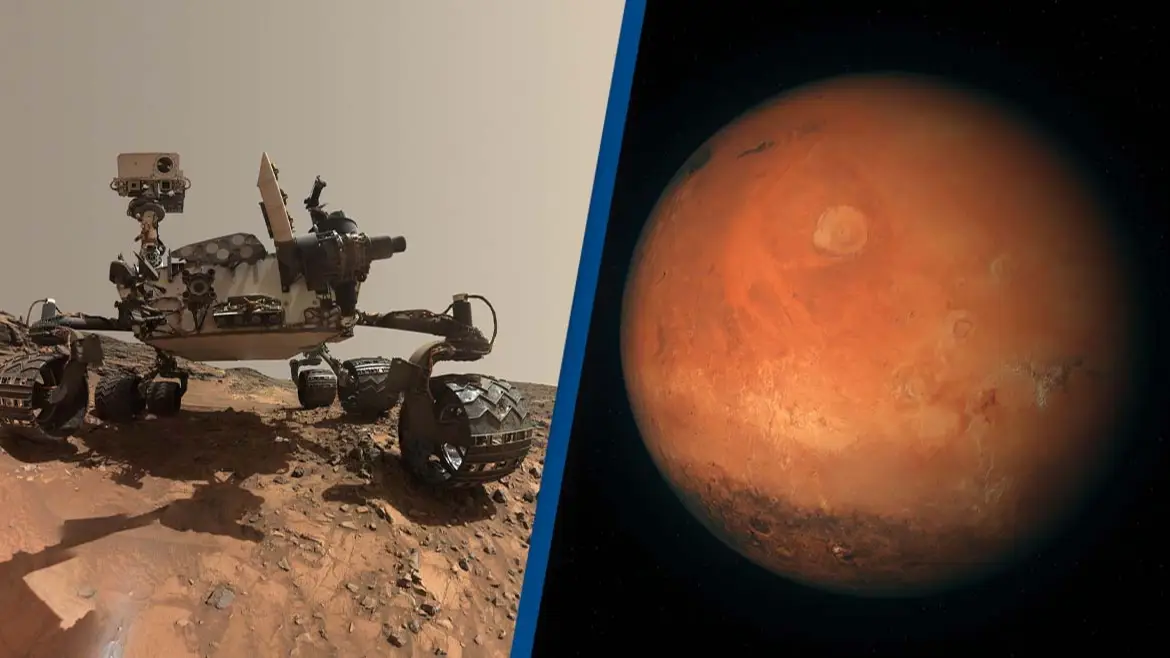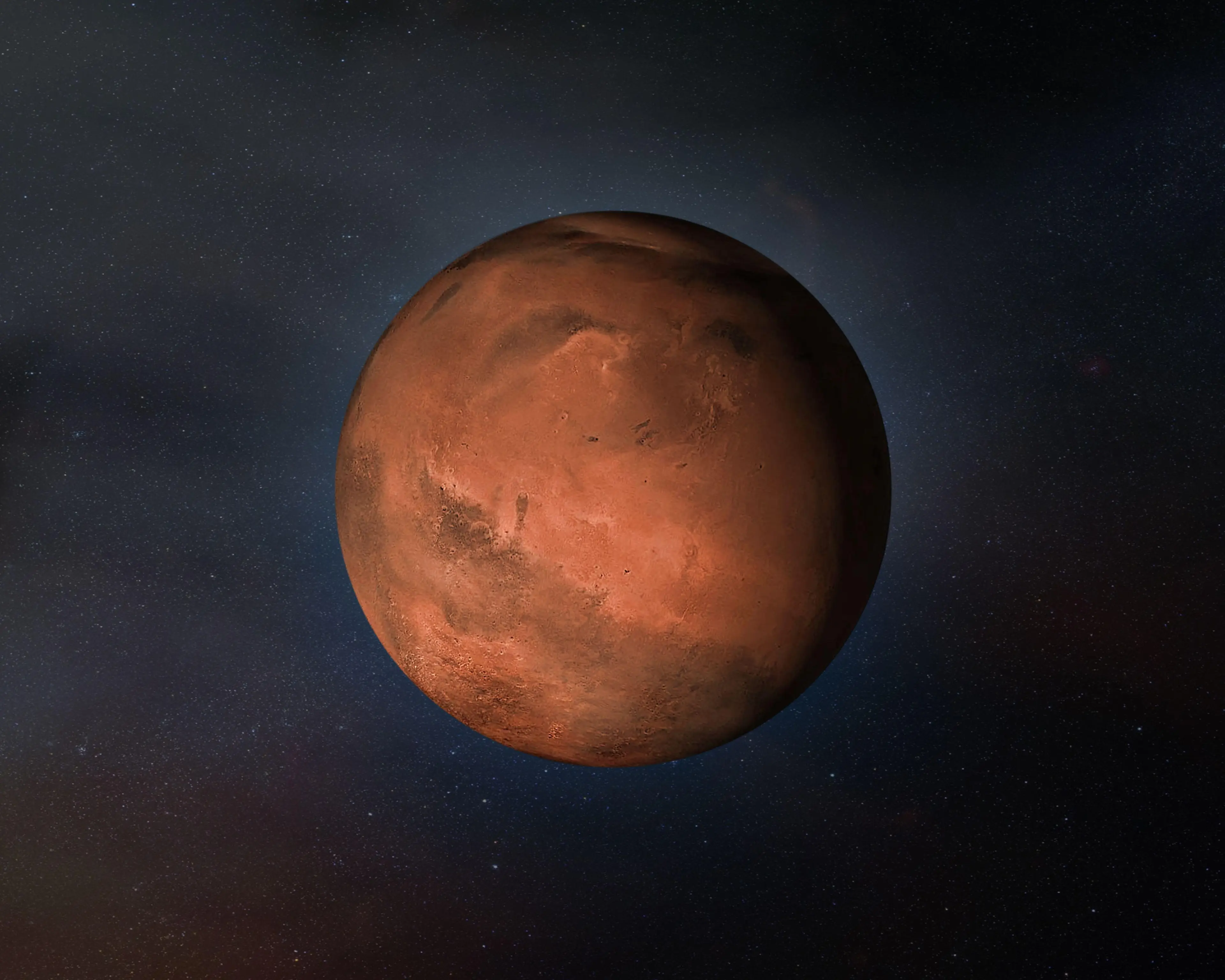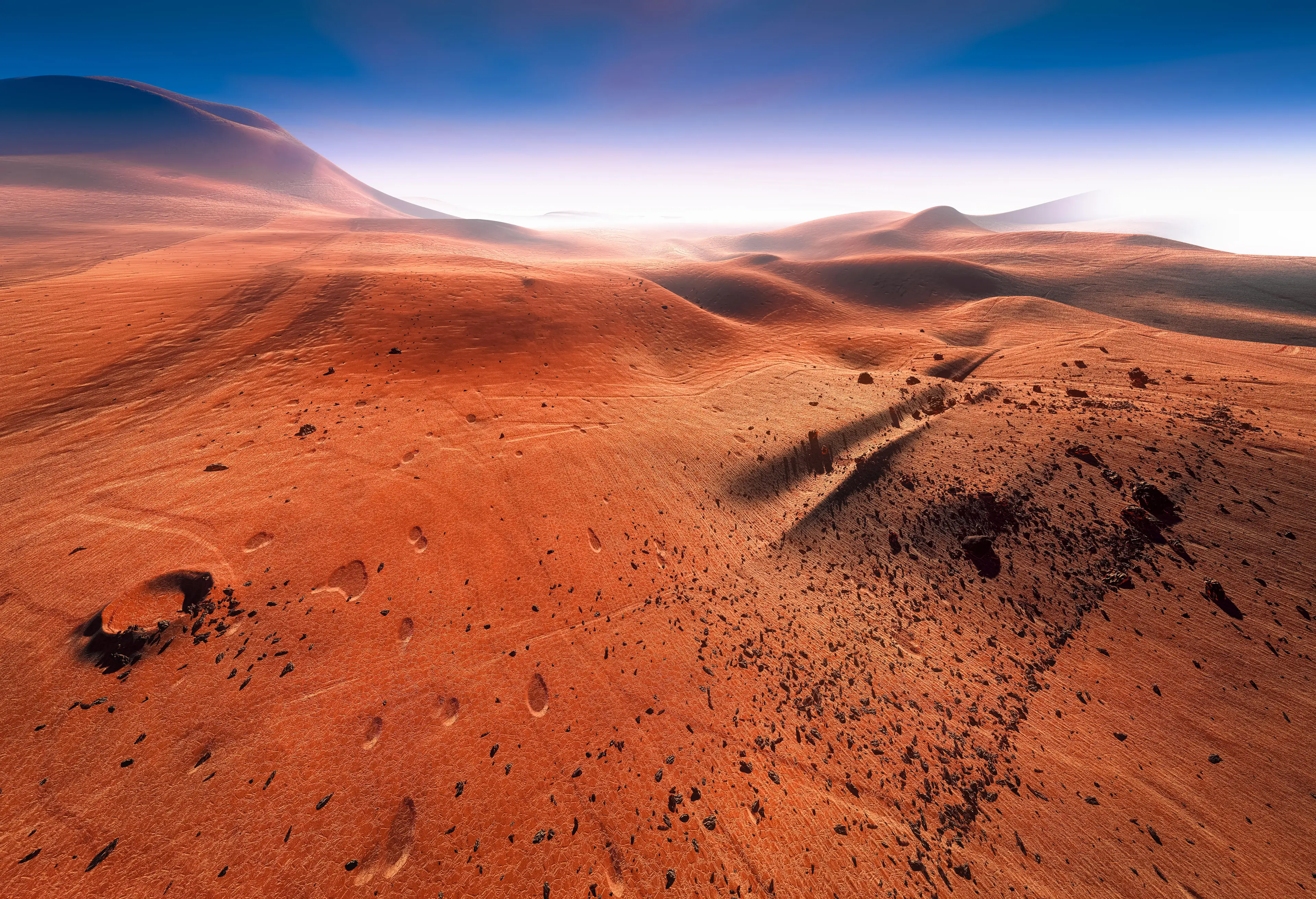
A team of researchers from Pennsylvania State University has found new evidence of ancient oceans on Mars.
That's right, the red planet with a seemingly hostile, dust-filled atmosphere may have once been home to a coastline and honestly, how cool of a swim would that be?

The team, led by Benjamin Cardenas published their findings in the Journal of Geophysical Research: Planets.
Advert
Analyzing terrain maps of Mars, the team tracked the sedimentary accumulation in specific areas that could be consistent with the levels present in ocean shoreline accumulation.
The researchers mapped over 6,500km of fluvial ridges, basically signs of sediment that gets deposited by flowing water, and grouped them into 20 systems.
They then traced the evidence together to present a stratigraphy of an ancient ocean's margin.
For those of us that skipped a lot of their GCSE science textbook (us) the team essentially measured the amount of sediment left from water flow in each area to form a map of the shoreline.

And, turns out that the "Measurements of ancient flow directions and stratigraphic positions record a history of an ocean-scale shoreline that, over time, rose at least 900 metres vertically while retreating from north to south," which is a pretty big ocean.
This means that not only could Mars have had a substantial body of water, but it also points towards the planet having a warmer and wetter climate than first thought, which bodes well when considering the planet as an option for sustaining life.
Still, while the findings are ridiculously impressive, according to Cardenas, they gathered it using pretty 'mundane' stratigraphy and geology.
"On Earth, we chart the history of waterways by looking at sediment that is deposited over time."
So, they applied this idea to Mars, and hey-presto, there's some pretty impressive findings, as Cardenas continued to explain: "We call that stratigraphy, the idea that water transports sediment and you can measure the changes on Earth by understanding the way that sediment piles up. That's what we've done here — but it's Mars."
Cardenas said that the findings were significant in helping point towards the potential for life on the red planet: "What immediately comes to mind as one the most significant points here is that the existence of an ocean of this size means a higher potential for life."
Topics: Science, Technology, News, Space, Viral